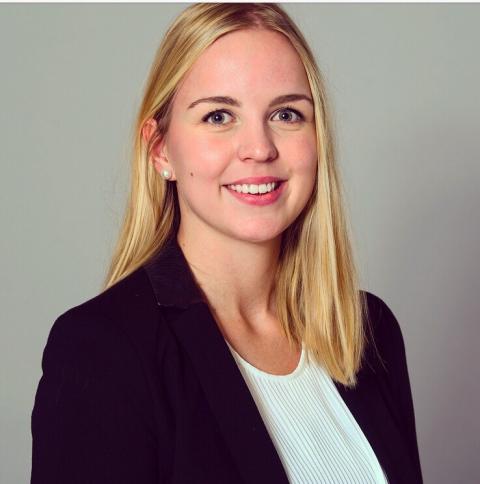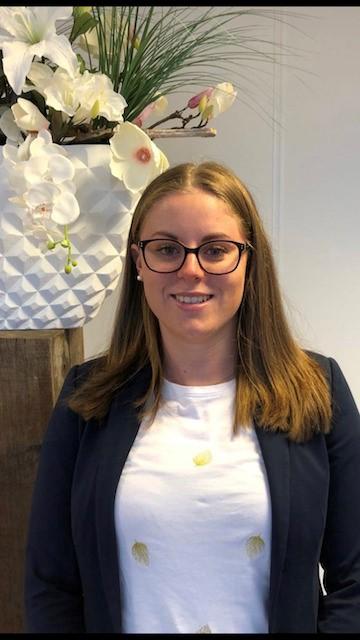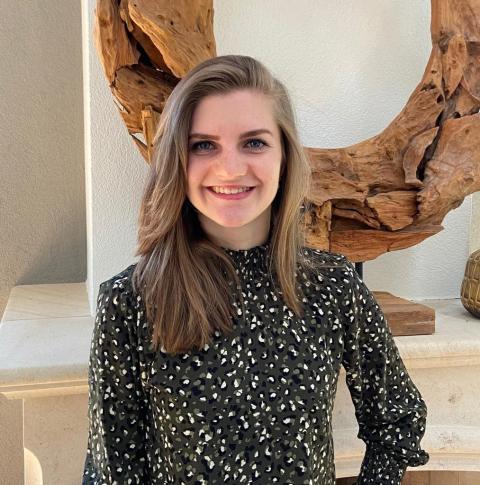"Thesis circle" around crisis management in family businesses in corona times
With a turnover of more than € 400 billion (2018) and approximately 2.5 million jobs (almost 30 percent of jobs in the Netherlands), the 270,000 Dutch family businesses are a factor within our economy that is not to be underestimated. How did family businesses perform in the ‘corona year’ 2020? Four Master’s students tell about their thesis research on this broad theme. “Especially in times of crisis, family ties can be beneficial.”
For the average Dutch consumer, family businesses do not at first sight differ very much from non-family businesses. Those who look a little bit further, however, quickly see that family businesses differ in a number of crucial ways: for example, they have a different ownership structure, they generally focus on the long term rather than the short term, and they often look within their own family ranks for succession first.
Special circumstances
In sum, a group of businesses with a special profile. Just like any other enterprise, family firms had to face the same special circumstances this past year: the corona crisis that hit the Netherlands in the spring of 2020.
For the Tilburg Institute for Family Business (TiFB), this prompted the establishment of a thesis circle (see box). How did family businesses keep afloat during ‘corona’? In the past year, nine Master’s students concentrated on subtopics related to this central question. For instance, Jon Stoelwinder studied the entrepreneurial spirit of family businesses during this sudden crisis. To what extent were they able to weather the storm? The starting point for his research was the so-called entrepreneurial orientation model, Jon explains. “This model has five dimensions: autonomy, competitive aggressiveness, innovativeness, proactiveness, and risk taking. To what extent did family businesses apply these five dimensions in their crisis management? And to what extent did they succeed in finding an adequate response to the situation that arose so suddenly? I interviewed quite a number of businesses with these questions. What struck me in particular was that many family businesses succeeded very well in responding quickly to the new situation. The dimensions of proactivity and innovativeness really stood out in this respect.”

Family businesses are flexible in times of crisis
Jon Stoelwinder
According to Jon, family businesses have the benefit of having a relatively flat organizational structure with easy access, making them preeminently flexible in times of crisis. “They are often able to quickly implement changes. That is what we saw in family businesses in a sector that was badly hit: the hospitality industry. Many of them were able to rig up a take-away service in no time. What also helped is that family businesses are often strongly rooted in the local community. Since they are more in touch, in a natural way, with what is going on, they are better able to anticipate.”
Perception of the crisis
For her thesis, Marieke Rietveld studied the perception of the crisis by family businesses. Like Jon, Marieke also concludes that family businesses were able to respond rapidly. “Since the owner is often also the CEO, family businesses can quickly review their strategy. What struck me was that not all businesses studied perceived corona time as a real crisis. Of course, every company was faced with the general rules on behavior, such as keeping 1.5 meters’ distance. But apart from that, the way the crisis was perceived differed greatly. A sector like the hospitality industry was hit hard, of course, but other sectors experienced so little impact that they did not really fit into the crisis perception model that I used. For instance, a family firm that manufactures dormers indicated that the corona crisis had not impacted their turnover in any way.”
Jon came across businesses that even did particularly well during the corona crisis. “Businesses in the construction industry, for example, did well almost without exception. The owner of a garden center I spoke to sold more than average. At the same time, the crisis was unpredictable. Like other retailers, that same garden center ultimately had to close its doors during the second lockdown.”

Family businesses were able to respond rapidly
Marieke Rietveld
Thin dividing lines
Elisa Boom and Elle van der Heijden worked on their theses partly in tandem; they interviewed the same family businesses, each from her own perspective. Elle mainly focused on the effect of the special position of family businesses in times of crisis. “In family firms, the dividing lines between family and business are naturally less clear than in other types of businesses. Employees have a role in the company but also in the family. That gives rise to a particular dynamic that can result in conflicts – Elisa’s topic –, but also in work family enrichment, whereby the work and family domains reinforce each other. I was mainly interested in the tactics used by family businesses to promote this enrichment.” Especially in times of crisis, the family relationship can be beneficial, Elle concludes. “Within a family firm, the lines are usually short and there is more mutual trust. As a result, you will feel understood more quickly if you are overwhelmed and that makes it easier to take a backseat for a while to recharge in times of great stress. Those strong ties and the short lines also help to make quick decisions during a crisis.”
Conflicts
Elisa aimed her research mainly at the other side of the coin: potential conflicts, for work family conflicts within family businesses have a dynamic all of their own, Elisa discovered. “In many family businesses, you saw that the already thin dividing line between work and private life became even thinner. At home, family members also worried about how the corona crisis was affecting the business. It also happened that family members fell ill or even died, which, of course, also impacted the business.” Especially in sectors badly affected by the crisis – including the hospitality industry –problems were more likely to arise, Elisa observed. “People slept badly, complained of headaches and anxiety, and had trouble staying focused.”

The already thin dividing line between work and private life became even thinner
Elisa Boom
However, in this case, too, it was family members who were able to provide good mutual support in times of crisis, Elle adds. “It helps you a lot to deal with a situation if you get support from people who understand your private situation. Family firm employees usually experience much commitment and support from their family members.”
Rapid response
Marieke is from a family who owns a business that is mainly active in logistics and transport. “Especially at the beginning, we felt the impact of the crisis quite strongly when the supply from Asia came to a halt. Fortunately, our family firm is also active in other branches, including glass sorting. This diverse portfolio in particular proved to be a major asset that got us through the crisis. Our company also decided to put extra effort into optimizing business processes to save costs. That is one of the advantages of the family firm: because the owners are at the helm of the company, it is possible to change course quickly.”
Jon mainly saw this thesis circle as a unique opportunity to conduct research on a current theme like the corona crisis. The same goes for Elisa: “I do not have much affinity with the phenomenon of the family firm but, in this thesis circle, I discovered that a lot of interesting research can be done on the intersection of family businesses and a current topic like the corona crisis.” Elle had always been fascinated by the different cultures within businesses: “This thesis offered me the opportunity to delve deeper into this special target group.”

Sparring can be done equally well on screen
Elle van der Heijden
Solitary business
Owing to corona, research for the theses was conducted at a distance. Jon: “Even in normal circumstance, writing a thesis is a solitary business. Especially in this crazy time, the thesis circle proved to be a welcome way to keep in touch with fellow students. If you need to spend most of your time at home, that online contact is great.” Elle did have to revise her romantic image of graduation, she laughs: “Working at your thesis in the library together with fellow students, having a coffee now and then, and helping each other pull through: that never happened. But sparring can be done equally well on screen, fortunately.” Elisa, finally, points out the practical benefits: “Sometimes, Elle and I conducted as many as four interviews in one day. If we would have had to physically visit all those family businesses, we could never have done it at this rate. It was fun to learn so much about a special group of businesses via this thesis circle.”
Bio's
Name: Elisa Boom (24, Strategic Management)
Thesis: The influence of boundary management in family business during the Covid-19 crisis
Job: CDD Analyst at Robeco
Name: Elle van der Heijden (24, Strategic Management)
Thesis: Creating work-family enrichment that helps family firm owners in the Covid-19 crisis
Job: Project manager at Vanderlande
Name: Jon Stoelwinder (23, International Management)
Thesis: Entrepreneurial orientation within family firms during the Corona crisis
Job: Account manager at Centralpoint
Name: Marieke Rietveld (22, International Management)
Thesis: Seeking the opportunity: Exploring the conditions under which Dutch family firms perceive an opportunity in the Corona crisis
Job: Trainee Consultancy at AFAS Software
Thesis supervisors commenting
The family business has momentum
Assistant Professor Astrid Kramer and PhD student Joyce Kox of the Tilburg Institute for Family Business (TiFB) acted as coaches in the thesis circle to some of the participating students (the other students being supervised by Marjan Groen). Academic interest in the family business has grown in recent years. Astrid: “Many family businesses weathered the financial crisis relatively well. This sparked an interest in this type of business. What is it that makes family businesses perform well in crisis situations?” Joyce has notice that the family business had got momentum. “That translates in increasing academic interest, from Tilburg researchers, among others. The commitment of family members provides a specific dynamic in this type of business. With our research, we would like to shed more light on how this dynamic actually works.”
Added value
The thesis research projects of the thesis circle are part of this, Astrid explains. “Students often like being able to tackle a well-defined topic within a larger research context. In doing so, they strike out on their own, in this case, by approaching and interviewing various family businesses.” According to Astrid, this is also where an important added value lies. “In a short time, students build a relevant network, which can benefit us as researchers as well if we want to do follow-up research. And sometimes the students pointed out interesting literature to us that we had not yet discovered ourselves.”
Synergy
Without any exception, the students participating in this thesis circle were enormously motivated to address the subject, Joyce noticed. “You could see the synergy emerge, for instance, with Elisa and Elle, who decided to work together in conducting the interviews. Their theme – the interaction between family and business and managing the boundaries between them – certainly lends itself to follow-up research.”
The thesis circle offers participating students sparring opportunities, Astrid says. “When you are writing your thesis – usually a rather lonely task – that is a very good thing. And: you have more of a guarantee that your thesis will not end up in a drawer somewhere, but that it is actually going to be used. That is what you are doing it all for as a student, isn’t it?”
The 'New Common'
The corona crisis has compounded major societal challenges. Tilburg University shares knowledge and insights to reshape our society. We are happy to discuss this New Common.
Date of publication: 7 July 2021
